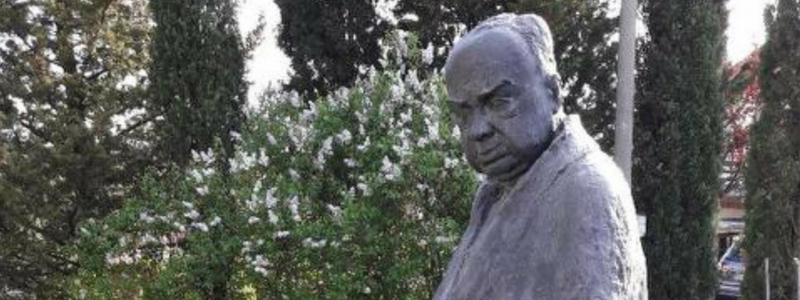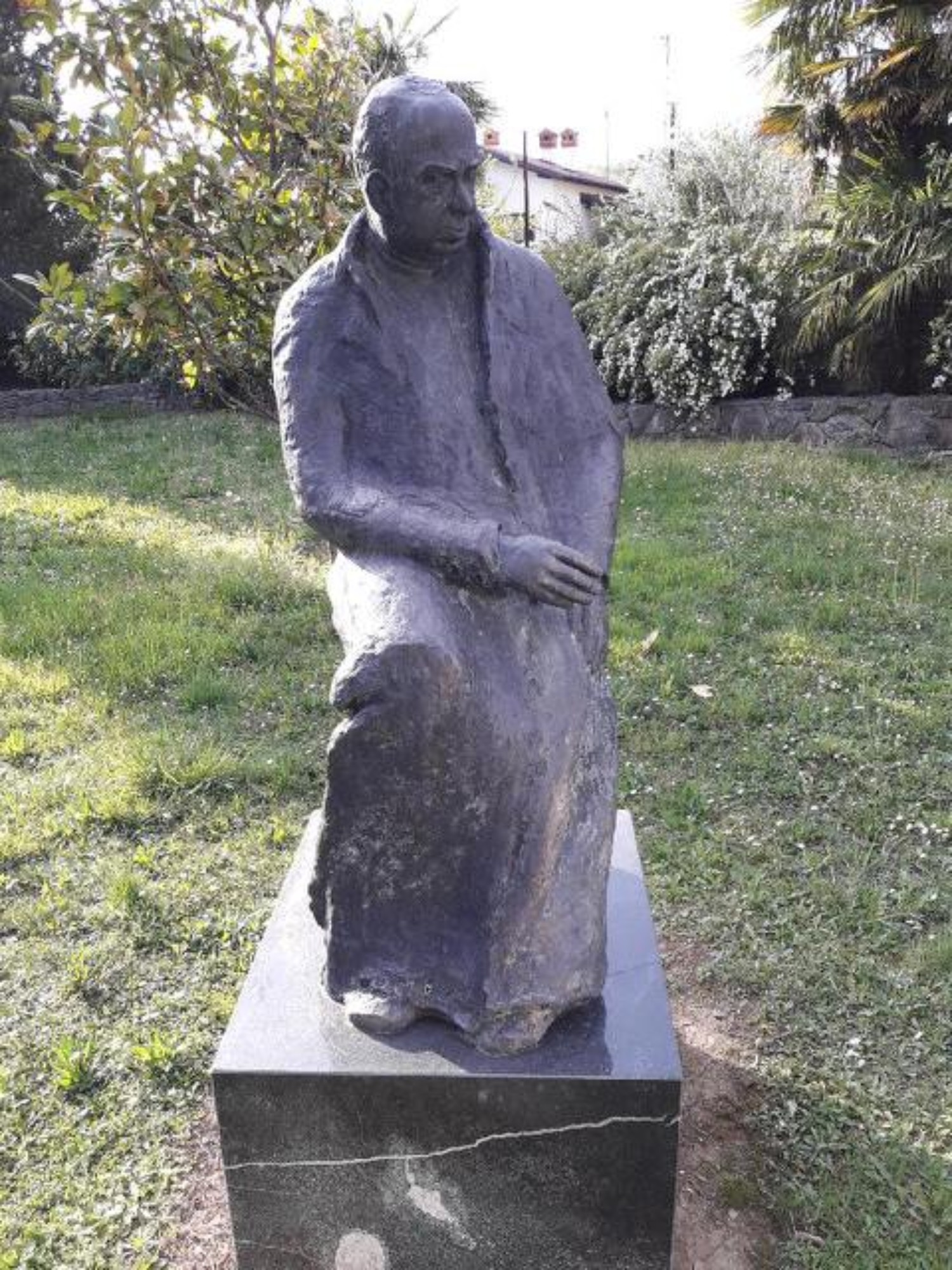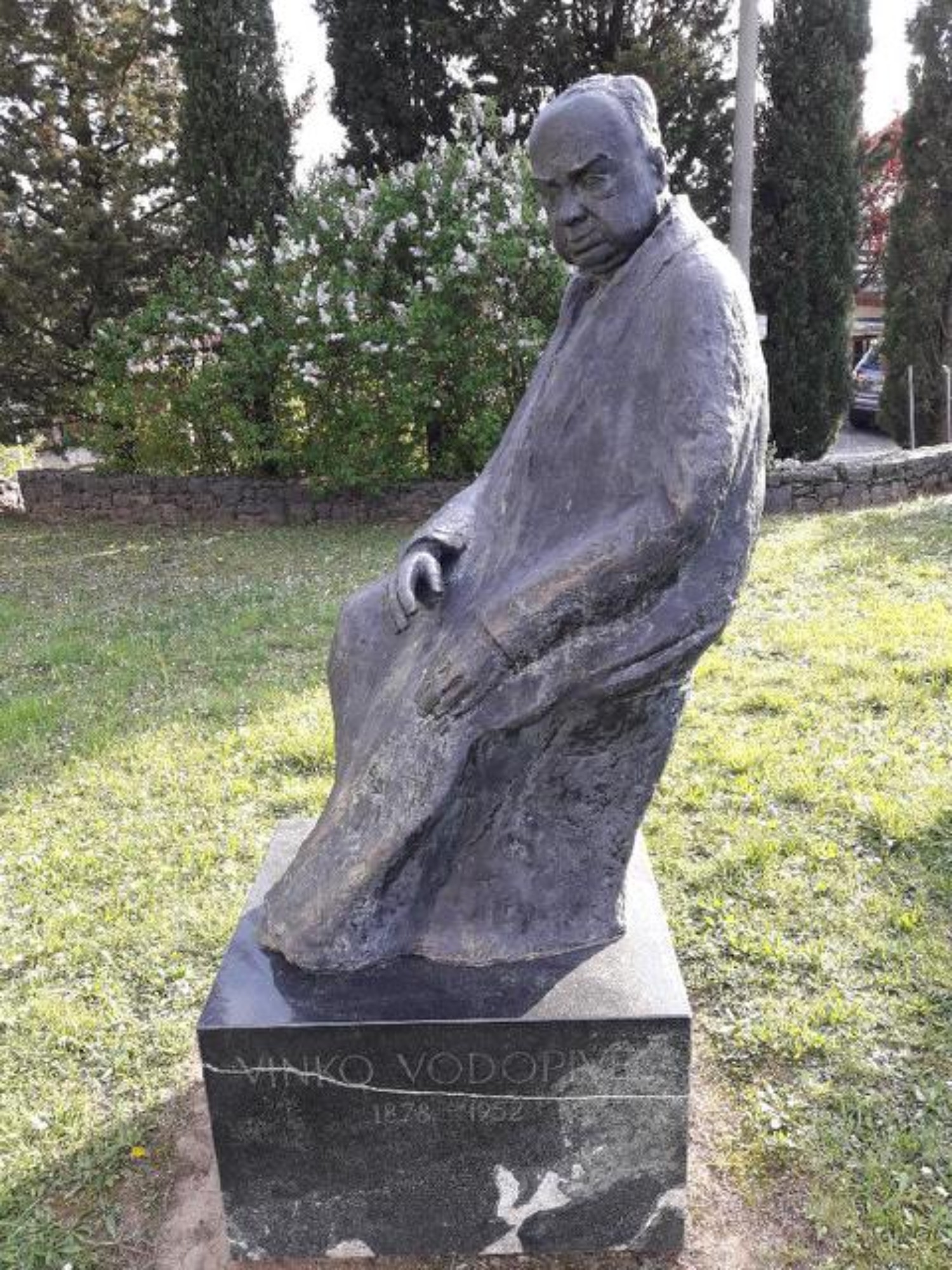In 1992, during the celebrations organised by Kromberk parish and Kromberk – Loke Municipality to mark the 40th anniversary of the death of Vinko Vodopivec, a stone sculpture of the composer was erected on a green in front of the Kromberk parsonage. The statue was made by Zmago Posega.
Vinko In 1992, during the celebrations organised by Kromberk parish and Kromberk – Loke Municipality to mark the 40th anniversary of the death of Vinko Vodopivec, a stone sculpture of the composer was erected on a green in front of the Kromberk parsonage. The statue was made by Zmago Posega.
Vinko Vodopivec
Priest and composer Vinko Vodopivec (1878–1952) played a major role in shaping the musical culture of Slovenia’s Primorska (Littoral) region by creating religious and secular music. A self-taught musician committed to national revival, Vodopivec developed a simple and comprehensible style of artistic expression. He joined the Caecilian movement and wrote songs that have become part of the national folk song repertoire, as well as various church hymnal standards. Under the pseudonym of Ambrozij Sraka or Srakar, Vodopivec also engaged in choir conducting, editing publications and writing articles.
Since Vodopivec’s father was an organist, his lifelong interest in music was first kindled in his domestic environment. Nevertheless, although he took lessons in counterpoint and harmony with Danilo Fajgelj for a period during his studies, he was primarily self-taught. A talented multi-instrumentalist, he played violin, piano, tambura and viola in grammar school, in addition to conducting a choir and playing the organ.
He joined the priesthood, and while serving as a priest in Kamnje, Črniče, Kromberk, Cerknica and, during his final years, Gorizia, devoted himself to composing church music. The waves of national revival which swept over Primorska and spurred the expansion of music culture also influenced Vodopivec. His first music composition, O salutaris hostia, became available to a broader audience when published in Cerkveni glasbenik (Church Musician) in 1902. His music works appeared in Caecilian publications and frequently as self-publications. He advocated his views on music in magazine articles.
A prominent example of his output of 1200 pieces is Žabja svatba (Frog Wedding), a musical setting of a poem by Josip Stritar and a song that has entered the national folk music canon. Vodopivec wrote it in Cerknica, his place of refuge during World War I. In addition to an extensive collection of choral compositions for male and mixed ensembles, his secular music includes some Singspiels. Vodopivec’s most popular and celebrated compositions are written primarily for male choir, published collectively in 1938 (Na poljani, Jaz bi rad rudečih rož, O večerni uri, Pobratimija, Fantovska pesem, Oj nikar, nikar ne hodi – In a Field, I’d Like Some Red Flowers, Eventide, Brotherly Friendship, A Young Fellow’s Song, Oh Please Don’t Go). The musical texture of his religious works, Latin masses and church choral pieces for male ensembles does not differ significantly from his secular vocal music, it is only the Latin liturgical text that reveals the context.
Given his limited compositional knowledge, Vodopivec’s contribution to Slovenia’s music heritage lies perhaps not so much in the artistic merit of his musical texture, which did not transcend a simple song form, but his original melodic inspiration and great fervour for the national revival, which informed both his music and editorial/clerical duties during the rise of fascism.
His compositions still form an integral part of the repertoire of Primorska’s secular and church choirs. In Vodopivec’s honour, distinguished conductor Anton Nanut formed the Primorska Academic Choir Vinko Vodopivec in 1953.
Maia Juvanc


